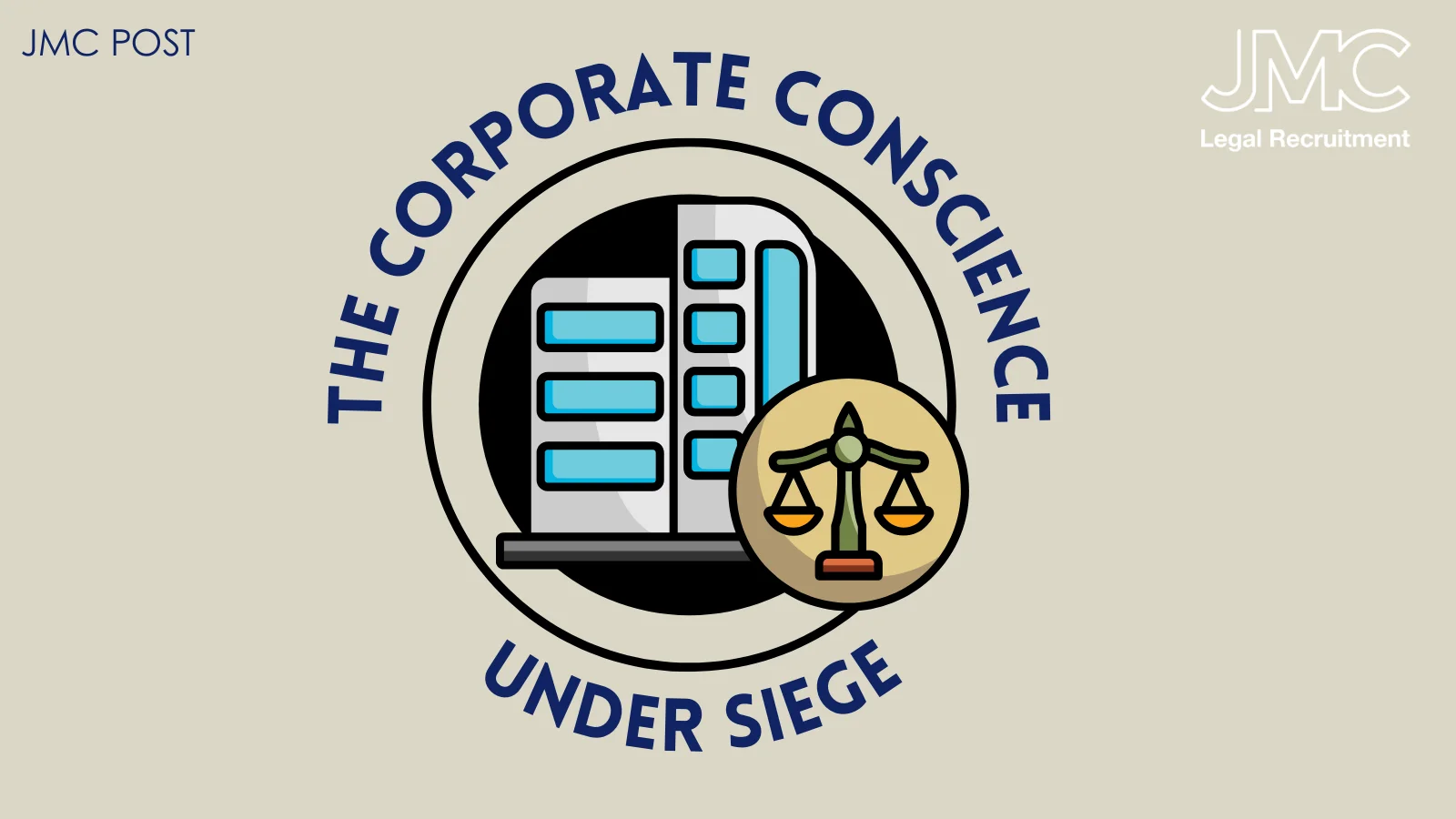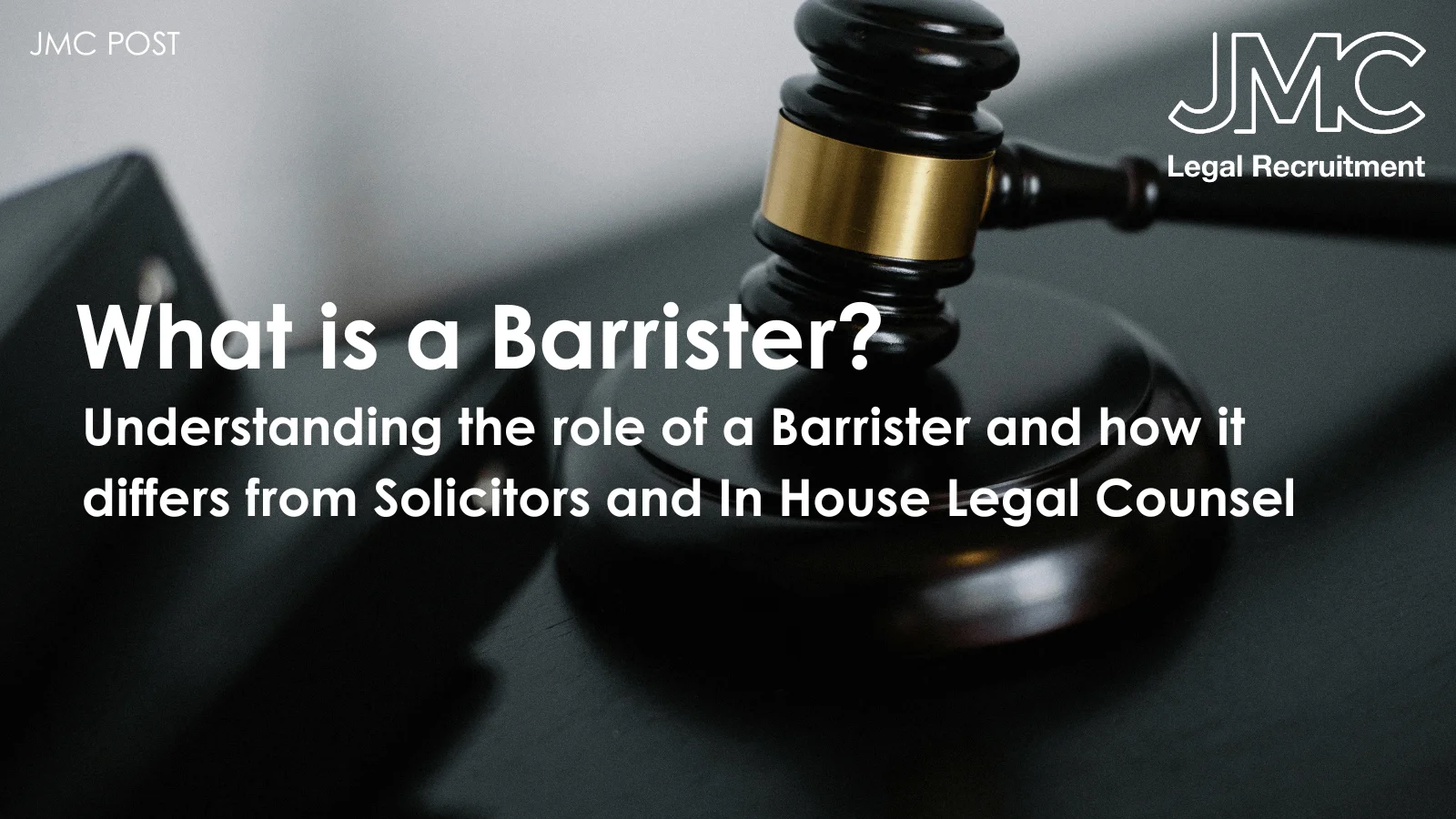
What Is A Barrister?
14 Oct, 20255 minutes
What Is a Barrister?
Understanding the Role of a Barrister and How It Differs from Solicitors & In-House Legal Counsel
In the UK legal system, a barrister is a lawyer who specialises in advocacy and courtroom representation. Barristers are often self-employed, working in chambers, and are typically instructed by solicitors to provide expert legal opinions or to represent clients in court. Unlike solicitors or in-house counsel, barristers focus primarily on litigation, dispute resolution, and specialist advice, making them a critical part of the UK legal landscape.
How Barristers Train: Bar Course and Pupillage
Becoming a barrister involves a structured training pathway:
- Academic Stage: Complete a qualifying law degree (LLB) or a conversion course (GDL) for non-law graduates.
- Bar Professional Training Course (BPTC): Practical training in advocacy, drafting, and professional ethics.
- Pupillage: A one-year apprenticeship with an experienced barrister, split into two six-month periods (“non-practising” and “practising”). The minimum Pupillage Award is set by the Bar Standards Board (BSB).
- Tenancy in Chambers: Successful pupillage candidates may secure tenancy to begin independent practice.
This rigorous training ensures barristers are highly skilled in courtroom advocacy and specialist legal advice, which sets them apart from solicitors and in-house lawyers.
Barrister vs Solicitor vs In-House Counsel
Here’s a comparison to clarify the differences in roles and responsibilities:
Role | Main Focus | Employment Model | Key Advantages |
Barrister | Court advocacy, specialist advice | Self-employed in chambers | High specialisation, courtroom expertise, flexible practice |
Solicitor | Client-facing advisory, transactions, case management | Employed by law firms or corporate | Broader client exposure, structured career progression, potential for partnership |
In-House Counsel / Legal Counsel / General Counsel | Advising company on legal risk, contracts, compliance | Employed by a company | Direct impact on business, career diversity, strategic responsibility |
Understanding Chambers: The Barrister’s Business Hub
A key difference is the concept of chambers. A barrister's chambers is not an employer; it's a set of shared facilities and pooled resources (clerks, administration, marketing) that allow the self-employed barrister to run their practice. Fees and diary management are handled by the Senior Clerk, enabling the barrister to focus entirely on legal work and advocacy.
Barrister Salary and Compensation
The financial structure of the Bar is unique. Self-employed barristers are paid through their chambers, and their income is highly variable.
- Earning Potential: Earnings depend heavily on the area of law (e.g., commercial and chancery barristers typically earn significantly more than those in publicly funded areas like crime or family law), the seniority of the barrister, and the reputation of their chambers.
- Senior Earnings: Income for very senior barristers and King's Counsel can be among the highest in the UK legal sector, reflecting their elite specialisation and advocacy skills.
While the Bar Standards Board sets a minimum pupillage award (e.g., £24,203 in London from 2025), top commercial and financial chambers often offer awards and first-year tenant earnings in excess of £100,000, quickly surpassing many solicitor salaries.
Conversely, barristers focused on publicly funded work, such as criminal law, typically operate at the lower end of the scale. However, the upper echelons of the Bar offer immense financial rewards; senior barristers and King’s Counsel (KC) in lucrative commercial fields can command annual gross incomes that easily surpass £1 million, reflecting their elite specialisation and advocacy expertise.
Looking to Transition from Private Practice to In-House?
Many solicitors and barristers consider moving in-house to broaden their career opportunities, take on strategic roles, and gain exposure to business decision-making.
Wondering if you would be better suited to a career as a legal counsel or general counsel? Before you start applying to in house legal vacancies, read our article outlining the route into in house legal careers here.
Career Progression for Barristers: Achieving King’s Counsel (KC)
For a barrister, the ultimate professional title is King's Counsel (KC) (or Queen's Counsel (QC) when the reigning monarch is female).
The KC is a prestigious appointment given to barristers who have demonstrated exceptional ability in advocacy over many years. It is a highly competitive application process that signifies a move to the most complex and high-profile legal work, often leading to a substantial increase in fees and reputation.
FAQ’s:
Q: What is a barrister?
A: A barrister is a specialist lawyer focused on advocacy and courtroom representation in the UK.
Q: How does a barrister differ from a solicitor?
A: Barristers primarily represent clients in court and provide specialist advice, while solicitors manage client relationships, contracts, and legal transactions.
Q: Can barristers move in-house?
A: Yes, many barristers transition to in-house counsel or General Counsel roles with the right guidance.
At JMC Legal, we specialise in helping lawyers transition from private practice to in-house positions across sectors including technology, energy, financial services, and life sciences. Whether you’re exploring your first in-house move or a General Counsel appointment, we can guide you through opportunities, market expectations, and salary benchmarking.



